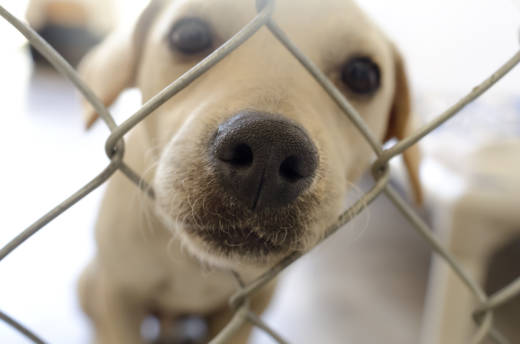A radical change is coming to California’s pet industry. On Friday, the state became the first requiring pet stores to sell animals from shelter and rescue centers.
Governor Jerry Brown signed Assembly Bill 485, which says dogs, cats and rabbits sold in California can’t come from large commercial breeding facilities. These operations, dubbed “puppy mills” and “kitten factories,” are often unsafe and inhumane, according to activists.
“Puppy mill” owners over-breed females in order to provide a steady and inexpensive supply of puppies to pet stores, says Brandy Kuentzel from the San Francisco Society for the Prevention of Cruelty to Animals. Diseases, mass breeding and inbreeding that lead to genetic defects and behavioral problems are also common.
Though California has fewer ‘puppy mills’ than other states, according to American Society for the Prevention of Cruelty to Animals Senior Director of State Legislation Susan Riggs, store owners still buy puppy mills from other states. Puppy mill pets raised in the Midwest often end up in California, Riggs says.
The Puppy Mill Project, a non-profit animal rights group, says more than two million puppies are bred in mills each year. Most pet store puppies come from puppy mills and pet stores are the main point of sale for puppy mills, helping the operations stay in business, according to the Puppy Mill Project.


